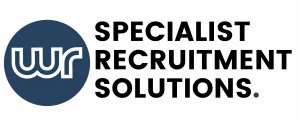Looking after mental health during COVID-19
Here at WR, our divisions look after some of the most valuable workers in times of crisis – and therefore, they must be able to care for their mental health in trying times. Whether you are at home, or working on the frontline in the fight against the coronavirus, taking care of mental health and wellbeing is essential. Here are some expert tips for looking after your mental health during COVID-19 for our workers in Health, HVACR, Engineering and Logistics.
Mental health and COVID-19: Staying at home
With government advising us to avoid all but essential social contact, many of us will be spending a lot of time at home, and our social activities will no longer be available to us. However, try and see this as a different period in your life, rather than a bad one, even if you didn’t choose it.
It will mean a new rhythm of life, a chance to be in touch with others in different ways than usual. If you are feeling lonely, contact friends and family regularly on social media, e-mail or the phone, as they are still good ways of being close to the people who matter to you.
It also may help to create a new daily routine that prioritises looking after yourself. You could try reading more or watching movies, having an exercise routine, trying different relaxation techniques, or finding new knowledge on the internet.
Avoid rumour and speculation
While it can be difficult, try to avoid speculation and look up reputable sources on COVID-19. Rumour and speculation can fuel anxiety and other mental health problems. Limit the amount of time you spend reading or watching things which aren’t making you feel better. Perhaps decide on a specific time to check in with the news. Having access to good quality information about the virus can help you feel more in control. You can get up-to-date information and advice on the virus here:
Try to stay connected
At times of stress, we work better in company and with support. Try and keep in touch with your friends and family, by telephone, email or social media, or contact a helpline for emotional support.
However, if you are on social media, try not to sensationalise things. If you are sharing content, use trusted sources, and remember that your friends might be worried too.
Finally, remember to regularly assess your social media activity. Tune in with yourself and ask if they need to be adjusted. Are there particular accounts or people that are increasing your worry or anxiety? Consider muting or unfollowing accounts or hashtags that cause you to feel anxious.
Keep calm and carry on
Ultimately, it is OK to feel vulnerable and overwhelmed about the outbreak, especially if you have a long-term physical health condition that makes you more vulnerable. At WR, we will do everything we possibly can to support our workers across HVAC, Health, Engineering and Logistics during the crisis.


